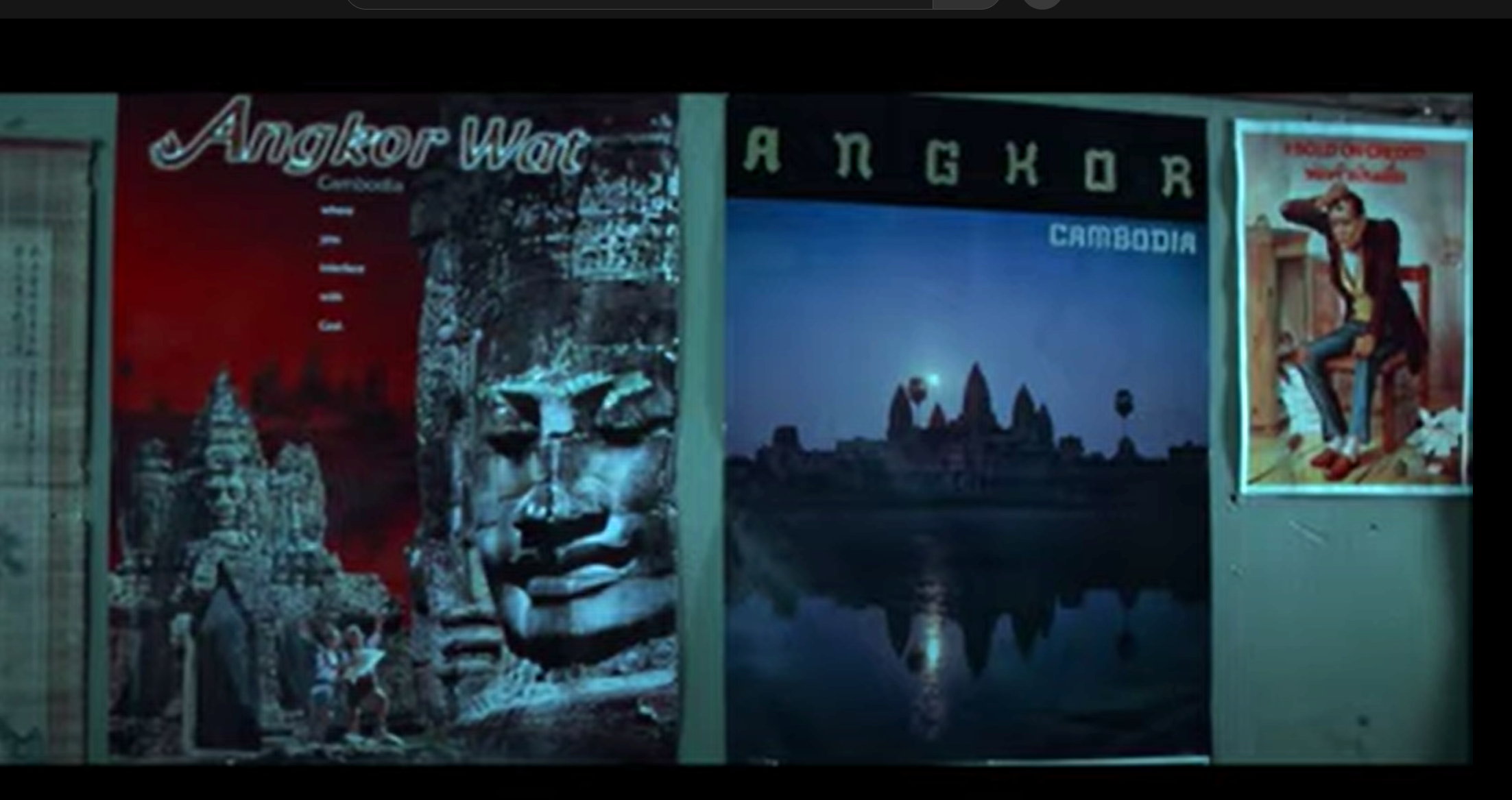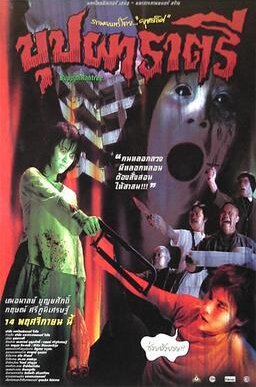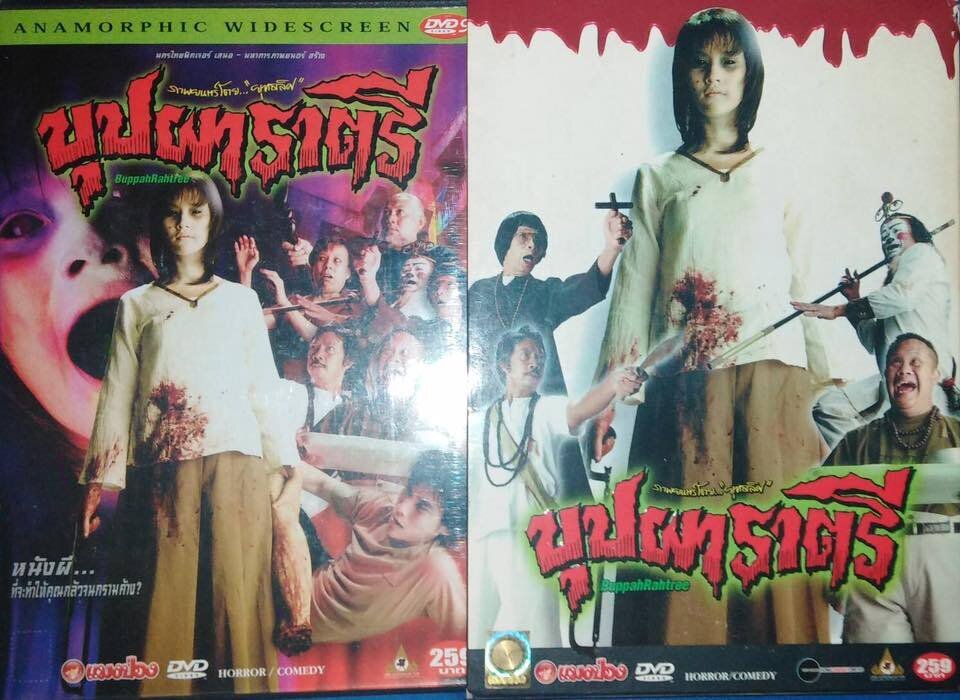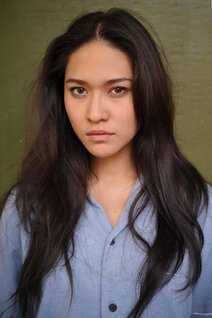Buppha Ratree | Horror Ghost Movie | บุปผาราตรี
by Yuthlert Sippapak
How a Thai classic horror movie turns to a Cambodian shaman as last recourse against a female ghost as enduring as true love.
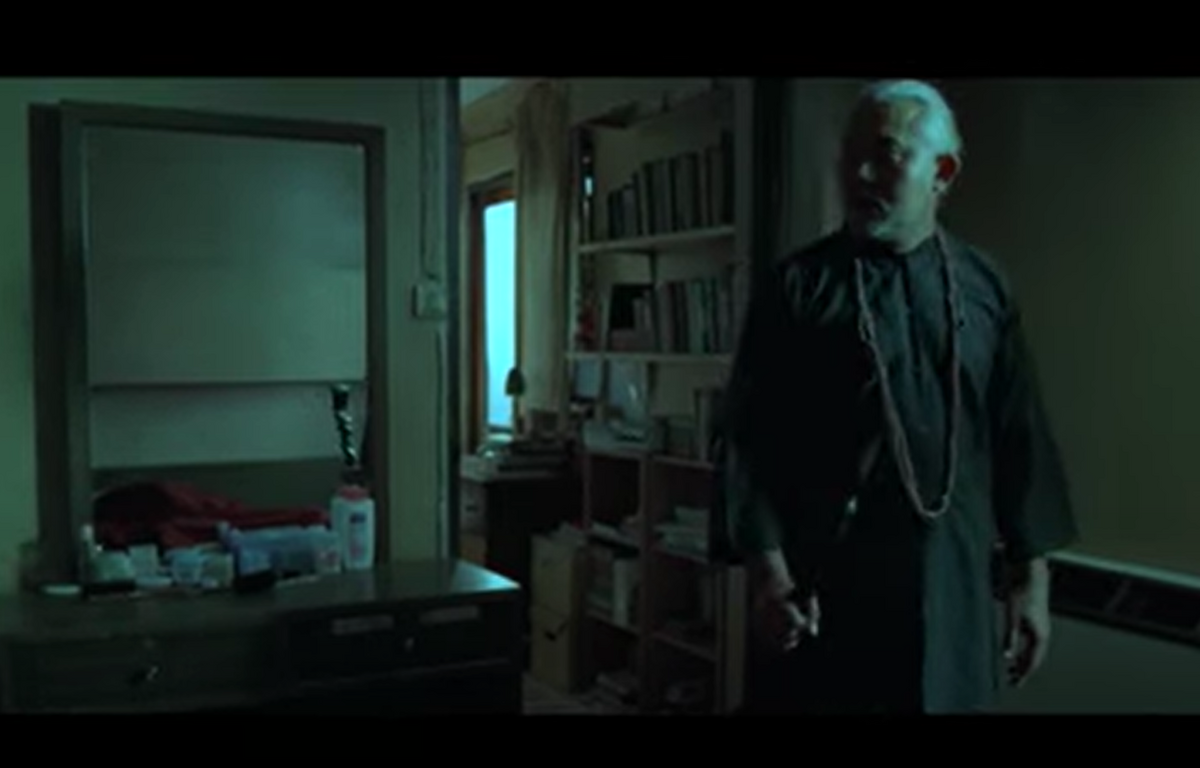
- Published
- 2003
- Author
- Yuthlert Sippapak
- Language
- Thai
Yuthlert Sippapak ยุทธเลิศ สิปปภาค’s 2003 Buppha Rahtree (Flower of the Night) is not only a powerful exploration of a very persistent female ghost — as the character will come back to haunt no less than four sequels, with the she-ghost transporting herself all the way to Japan in the last one (2017): it also illustrates how the Khmer spiritual medium exerts respect and fascination upon Thai artists.
“Because she couldn’t bear the fear of ghosts any longer, Sister See ran out of options, so she decided to call the best Khmer shaman: Let’s deal with the evil ghost!”, reads the movie’s release kit in 2003. At the end, though, even the spiritual force coming from Ancient Angkor (depicted through tourist posters in the movie) won’t assuage the spirit of a wronged girl.
In her perceptive “dystopia as liberation: disturbing femininities in contemporary Thailand” (Feminist Review, No. 116, dystopias and utopias, Sage Publications, 2017, pp. 64 – 83) Rachel V. Harrison gives the following analysis of the movie:
“A contrasting, and innovatively dystopian, alternative to the orthodox conclusion of the horror film genre, whereby the monstrous-feminine is restrained and the patriarchal status quo restored, however, is provided by Thai male director Yuthlert Sippapak’s blockbuster Buppha Ratree, Flower of the Night (2003). Buppha Ratree is from a lower middle-class, rural and sexually abusive background, all of which contributes to her introverted isolation when she becomes a student at a Bangkok university. There she is romantically pursued by cosmopolitan posh-boy Ake, unaware when she finally agrees to sleep with him that she is merely the stake in a wager between him and his wealthy male friends. Ake wins a bottle of scotch for bedding Buppha, who is shown to have silently sobbed her way through the sexual encounter as a result, we later discover, of having been abused by her stepfather. Buppha falls pregnant. Ake expresses some remorse for treating her as a pawn in a bigger game and promises to marry her, but instead he follows his mother’s instructions to take her for a back-street abortion, deserting her once he has dropped her back home and immediately leaving, unbeknown to Buppha, to study abroad. Alone in her dreary apartment, Buppha bleeds to death, only to return as a vengeful ghost to haunt her neighbours. A string of male ghostbusters are sent in to relieve the terrified residents of Oscar Apartments, the apartment block where much of the film is set. As the cover image of the DVD release of the movie indicates, various forms of exorcism are attempted to purify flat 609 where Buppha lives: first a sham Chinese shaman; then a jumpy Brahmin priest; then a Thai Catholic Father and his Western sidekick, Brother (nod-to-The Exorcist ) Damian; and finally a Khmer spiritual healer of superior magical powers. However, each and every one of their interventions proves futile, and unlike in Nonzee Nimibutr’s Nang Nak (1999), Yuthlert does not introduce the viewer to the final resolution of a superior Buddhist monk. Hence the ghost of Buppha cannot be put to rest. The closing scene depicts Buppha in full control of the deserted terrain of Oscar Apartments, watching over her mutilated ghost-partner Ake, who has rejoined her following his death from a drug overdose in London. He lies crippled on the floor, having had his genitals scalded with hot rice soup and his legs hacked off by Buppha to punish his philandering. Ake pleads for forgiveness as Buppha ‘lives’ on, having achieved a kind of pyrrhic victory, reigning dejectedly over a dystopian urban landscape. […] Buppha Ratree registers a failure in patriarchal, spiritual control, allowing the ‘monstrous-feminine’ to persist. Yuthlert’s Buppha transforms from a disempowered and abused young student to the emboldened and vengeful regulator of a dystopian urban space. It would be imprecise, however, to read this portrayal of Buppha as a genuinely feminist representation. Created by a successful, Bangkok-based filmmaker of originally rural, Isan origins, Buppha’s purpose is to serve as an admonition, in Yuthlert’s own view, to Thai men who fail to treat women fairly. For Yuthlert, Buppha is therefore less a feminist heroine in her own right than she is an educational tool for male sexual etiquette, one through whom men learn how to respect female purity and not besmirch women’s ‘honour’ with the threat of sex. Nevertheless, she is open to reinterpretation when refocussed through the lens of self-avowedly feminist Thai thinkers such as Kham Phaka.”
In an interview with UCLA International Institute magazine shortly after the release of the movie, the director was to remark: “Religions, I’m trying to have some.… Islam, we got that to try to…but yeah well, what kind of questions do you.. it’s kind of deep to the…Um… I don’t know, it’s different. Sometimes religion is different, but one thing that’s similar is the belief in ghosts. Every religion got ghosts but the way to treat, to prevent, to try to fight the ghosts is a different style, and the system of religion might be fit just for some country, you cannot…there is a different culture, even if it goes with the same system. Different religions must be something different. [.…] And yes, this is a love story, like love never dies – something like that – is the theme of the movie, but people might get it, because people enjoy horror and comedy and something like that. But I stick with love.”
Cast:
- Chermarn Boonyasak เฌอมาลย์ บุญยศักดิ์ (b. 15 Sept. 1982 — Bangkok, Thailand). Actress and model. Other names: Laila Bunyasak, Ploy พลอย. Starred in mega production Pattaya Heat (2023).
- Krit Sripoomseth as Ake.
- Chompunoot Piyapane as Muay.
- Sirisin Siripornsmathikul as Mrs. See.
- Ampon Rattanawong as Maew.
- Sakchai Sriboonak as Khmer Shaman 1.
หนังผีสยองขวัญ — บุปผาราตรี (Horror Ghost Movie — Night Flower) See the movie in Thai.
Tags: ghosts, legends, Thai cinema, healers, shamanism, healing
About the Author
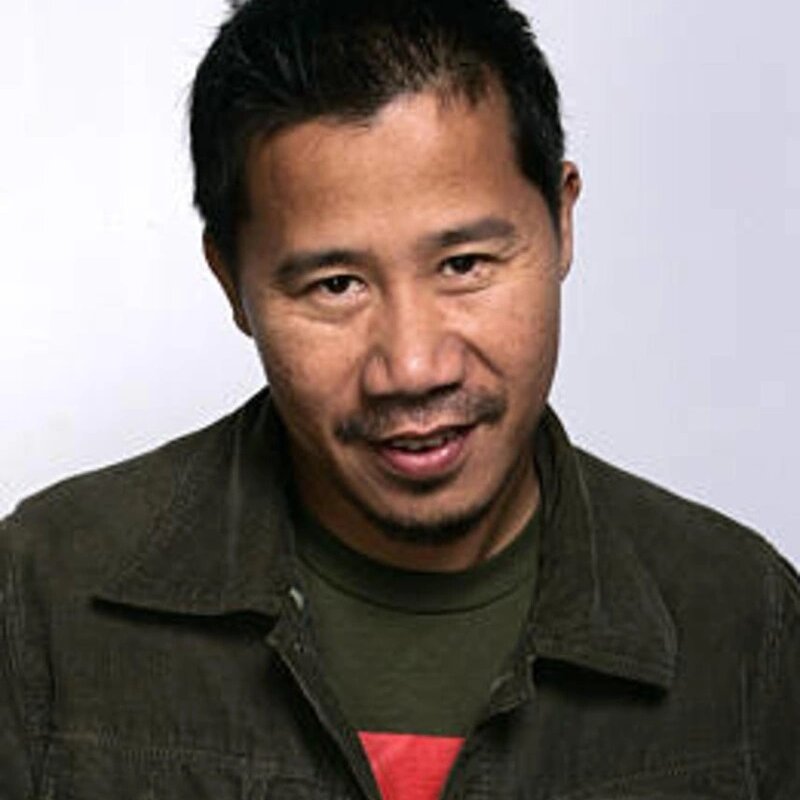
Yuthlert Sippapak
Yuthlert Sippapak ยุทธเลิศ สิปปภาค (b.. 8 Nov. 1966, Loei, Thailand) is a Thai film director, screenwriter and producer, best known for genre-blending films Killer Tattoo (comedy and action) and Buppah Rahtree (comedy and horror).
After studying fine arts and interior design at Silpakorn University, Bangkok, he joined the Art Students League in New York City, USA. He unsuccesfully submitted several scripts to Thai production companies. His first attempt at directing, Killer Tatoo (2001), a low budget production, was an instant hit.
Filmography:
- Killer Tattoo (2001).
- February (Khumphaphan) (2003).
- Buppah Rahtree (Rahtree: Flower of the Night) (2003).
- Sai Lor Fah (Pattaya Maniac) (2004).
- Buppah Rahtree Phase 2: Rahtree Returns (2005).
- Krasue Valentine (Ghost Valentine) (2006).
- Ghost Station (2007).
- The Last Moment (2008).
- Kill Tim (2008).
- Rahtree Revenge (2009).
- Rahtree Reborn (2009)
- Saturday Killer (2010).
- Sam Yan (2010).
- Friday Killers (2011).
- Bangkok Assassins (2011).
- Fatherland (2012).
- Heaven & Hell (2012).
- Chiang Khan Story (2014).
- Buppha Ratree: A Haunting in Japan (2016).
- Lady and The Jazz (2017).
- Sodemacom Killer 2 (2020).
- Nednari (2023).
- Producer: 7 BoyScouts by Kitty Chicha (2023).

